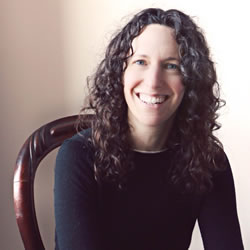|
On my very first day at a daily paper, I was assigned a news story. I reported it happily, exuberantly, even lavishly; but when it came time to write, I found myself staring in horror as the green cursor blinked at me insolently from its black screen.
(Yes, this took place a long time ago.)
A colleague suggested I type in my byline so the page wouldn't be completely blank—advice I followed then and almost every day since. But after writing my name I stopped typing, and I missed the deadline, and the city editor killed the story.
Well, it was a devastating experience, but I never missed another deadline. I became such a fast writer that on a couple of occasions I delayed sending breaking-news stories to my editors, because I was embarrassed by how quickly I'd written them. For one thing, I learned to stop over-thinking. Ideas that may be vague and abstract in my imagination, I've found, can become clear and organized as I set them down on the page. Sometimes what becomes clear is that what I've written sucks. But it takes the act of writing to figure that out.
I've taught journalism to graduate students, and often told them we should be grateful for deadlines. Time constraints can be punishing and cruel. But they also ground you. They force you to focus your thoughts and your writing, keeping it interesting but concise, fluid but not florid.
They get my heart beating and my mind racing, and maybe—hopefully—they instill a sense of urgency and immediacy in the finished product, too. But most importantly, they force me to stop deliberating and start doing.
Still, translating the tools of journalism to fiction hasn't been easy for me. There aren't really any deadlines, so my plans to write it languished for years. When I realized how quickly those years were piling up, the panic I felt became a kind of deadline. And it inspired me.
Before I had kids, in the vast deserts of free time I can no longer even fully comprehend, I spent a lot of time thinking about the fiction writing I wanted to do. Now that my spare time can be measured in minutes rather than hours, whenever I have the opportunity I sit right down at my desk and start pecking away. No time for angst or daydreams. The lack of time to write, surprisingly, is another effective deadline. It's forced me to be efficient, and it's also spurred me to become more prolific. Writing feels like a luxury, rather than a job or a chore.
Now the prospect of not writing fiction scares me as much as that city editor did. Maybe a little more.
I don't think everyone who wants to write fiction needs to first write fast-paced journalism. By no means do I recommend rushing out and having a passel of needy kids, unless you were already planning on it (in which case go right ahead), but combined, they eventually taught me what I needed to do, and it turned out to be pretty simple: Just write.
| 

